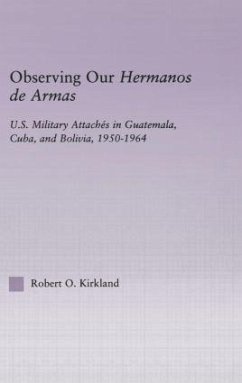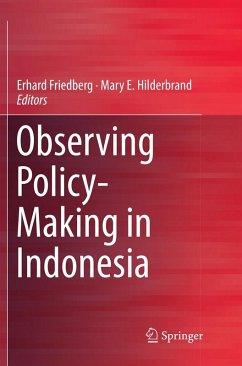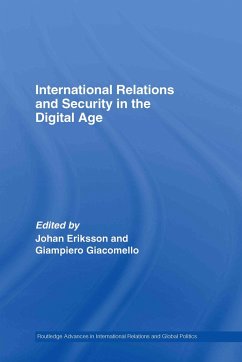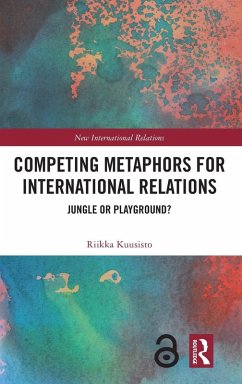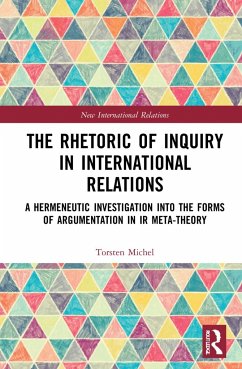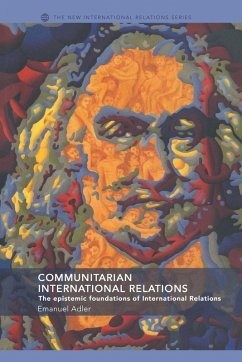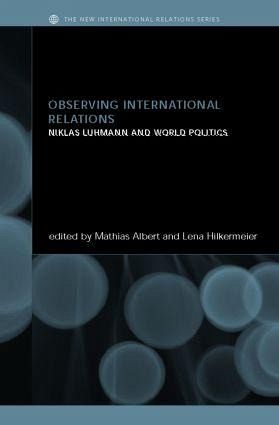
Observing International Relations
Niklas Luhmann and World Politics
Herausgeber: Albert, Mathias; Hilkermeier, Lena

PAYBACK Punkte
84 °P sammeln!
Observing International Relations draws upon the modern systems theory of society, developed by Niklas Luhmann, to provide new perspectives on central aspects of contemporary world society and to generate theoretically informed insights on the possibilities and limits of regulation in global governance. The authors develop a Luhmannian theory of world society by contrasting it with competing notions of international society, critically discussing the use of modern systems theory in international relations theory and assessing its treatment of central concepts within international relations, su...
Observing International Relations draws upon the modern systems theory of society, developed by Niklas Luhmann, to provide new perspectives on central aspects of contemporary world society and to generate theoretically informed insights on the possibilities and limits of regulation in global governance. The authors develop a Luhmannian theory of world society by contrasting it with competing notions of international society, critically discussing the use of modern systems theory in international relations theory and assessing its treatment of central concepts within international relations, such as power, sovereignty, governance and war.





